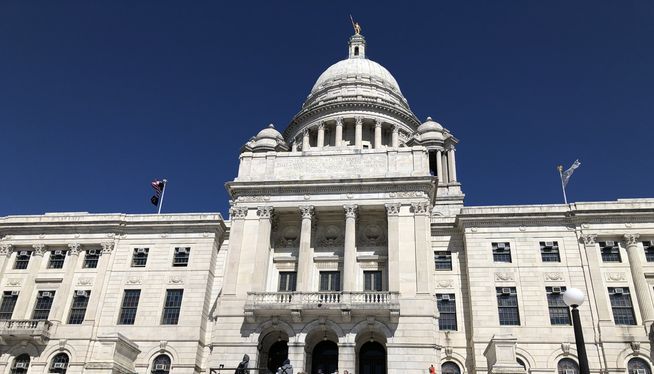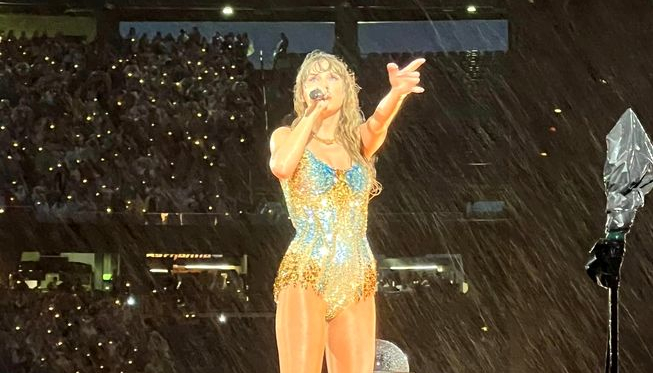
Senator Elizabeth Warren took a major step on Monday toward an all-but-certain 2020 White House run, seeking to become the Democratic nominee to challenge President Donald Trump on a message of economic equality and fighting corruption.
The Massachusetts progressive said in a New Years Eve email and video message to supporters that she’s launching an exploratory committee for a presidential run, which would give her a potential early edge in fundraising and organization. She said American families were “under attack from every direction,” due to a government that’s “bought and paid for by a bunch of billionaires and giant corporations that think they get to dictate the rules.”
Warren previewed her populist message in a recent interview with Bloomberg News.
“I’m in this fight for hard-working families. And that means reducing the student loan debt burden, increasing our Social Security payments for those who depend most on it, and the overarching piece, reducing corruption in government,” the senator said.
“Right now, Washington works great for the wealthy and the well-connected, it’s just not working for much of anyone else,” Warren added.
Warren, who handily won a second six-year Senate term in November, said she wants to defend the Affordable Care Act from Republican attacks and “find a system of Medicare available to all that will increase the quality of care while it decreases the cost of all of us.”
Polarizing figure
Warren has become a polarizing figure due to her aggressive criticisms of Wall Street, her support for raising taxes on rich Americans to mitigate income inequality, and her push to regulate large corporations that she often depicts as preying on ordinary people.
But that same advocacy, which dates back to her time as a Harvard law professor, has endeared her to a progressive base full of voters who are hungry for a sharp left turn by the Democratic Party.
“She was doing populist economics before everybody thought it was cool. So she has a background and message that has met its moment,” said Mary Anne Marsh, a Democratic consultant based in Boston, who argued that Warren is a front-runner because “she’s spent the better part of the last 18 months laying the groundwork for this moment.”
Campaign apparatus
Warren already has the building blocks of a campaign apparatus – a dedicated staff and a policy platform, outside advocates ready to go to bat for her, a grassroots fundraising operation that’s the envy of her rivals, and a political organization that she used to help Democratic candidates around the country in the 2018 election. She has $12.5 million in her Senate campaign account – more than any of her potential rivals in Congress – and can legally transfer any portion of that to a presidential bid.
Her likely path to the nomination would require winning a mix of women, progressives and non-white voters, Marsh said. She said the senator is well-positioned in the second nominating contest of New Hampshire, which has a history of backing presidential candidates from neighboring Massachusetts. And Iowa, the first contest, has a Democratic base with populist inclinations, as do other Midwestern states like Michigan.
Democratic base
Warren faces demographic and geographical challenges. She’ll be 70 in February 2020 at the start of nominating contests, which will feature scores of millennial and non-white voters who want candidates that are culturally relevant to them. She may face several African American opponents in a party where black voters have been decisive in picking the presidential nominee in the last two open contests – Hillary Clinton on 2016, and Barack Obama in 2008.
Marsh said Warren’s three toughest potential rivals would be Vermont Senator Bernie Sanders, California Senator Kamala Harris, and outgoing Texas Representative Beto O’Rourke, who came within 3 points in November of defeating incumbent Republican Senator Ted Cruz in the red state.
“Beto looms larger than life right now,” said Marsh. “I think Kamala Harris, who quizzed (Supreme Court Justice) Brett Kavanaugh – that Kamala Harris – could be a challenge. The kind of voters she’d appeal to, the Bernie, Beto, Kamala quadrant, would be the ones where they’d be going after a lot of the same voters.”
Big field
There will be other competitors as well. More than a dozen Democrats, spanning the party’s ideological spectrum, have expressed interest in making a run for the nomination.
And Warren also faces a biographical challenge. She’s been derisively labeled “Pocahontas” by Trump for her self-proclaimed Native American heritage. Seeking to quell the criticism, Warren in October released a DNA test showing evidence, a move that only provoked more pushback from Cherokee Nation and other advocates, who said it’s wrong and inappropriate to claim Native American identity on the basis of blood.
Warren’s decision to release her DNA test was the “dumbest thing in years,” said John Weaver, a Republican strategist and Trump critic who’s an adviser to outgoing Ohio Governor John Kasich. He said Warren and other liberals may tear each other apart in the primary.
“The populist progressive lane will be crowded, and the bloodletting on the far left as they battle for purity will hurt that wing the deeper they go into the primary calendar,” he said.
Academic background
An academic by profession, Warren rose to national prominence in the aftermath of the 2007-2008 financial crisis when she was drafted by then-Senate Majority Leader Harry Reid, a Nevada Democrat, to help oversee the implementation of the Troubled Asset Relief Program, or TARP, the $700 billion bailout of the financial markets.
As a Harvard law professor, Warren focused on bankruptcy law and consumer protection. She extended her influence beyond the academy by writing about economics and consumer finance for a popular audience. Her 2003 book, “The Two-Income Trap,” which examined how declining earning power was pressuring middle-class families, led to appearances on the television show “Dr. Phil,” where Warren proved herself the rare academic expert able to speak accessibly about abstruse policy issues to a lay audience.
“Elizabeth will be a formidable candidate and would make a great president. She has the know how to actualize the policies that will be debated during the Democratic primary,” said Barney Frank, the former Massachusetts congressman who co-wrote the 2010 financial regulatory law. But Frank isn’t endorsing anyone yet. “I want to wait to see how the race shapes up to see who will be the most electable opponent to beat Trump,” he said.
Liberal heroine
Years before political figures like Trump and O’Rourke used social media to shape the national conversation, Warren’s prosecutorial grillings of Treasury Secretary Timothy Geithner and others who appeared before the oversight panel went viral on YouTube, stoking anti-Wall Street sentiment that was still hot in the wake of the financial crisis and turning Warren into a liberal heroine. After she delivered a sermonette on the need for stricter financial regulation during a 2010 appearance on The Daily Show, the show’s host, Jon Stewart, famously asked her, “Can I kiss you?”
As part of her work during the post-crisis period, she proposed the creation of the Consumer Financial Protection Bureau, an agency that’s seen many of its signature enforcement efforts scaled back under the Trump administration. She was a special adviser to the CFPB from September 2010 to July 2011.
First elected to the Senate in 2012, Warren has been a reliably liberal voice, clashing not only with conservatives but with fellow Democrats in her opposition to financial deregulation. In 2014, she effectively halted the nomination of Antonio Weiss, a well-credentialed Lazard banker, to become the third-ranking official at Treasury. She resisted a push from some liberal activists to run for president in 2016.
Born in Oklahoma City, Warren was the first member of her family to graduate from college after completing high school at age 16. She attended George Washington University on a scholarship but left after two years. She married at age 19 and moved to Texas, where she finished her undergraduate studies at the University of Houston.
Her 2017 book “This Fight Is Our Fight: The Battle to Save America’s Middle Class” renewed her commitment to a message that propelled her to victory over Republican Scott Brown in her 2012 Senate race, and was widely seen as a precursor to a presidential run.
“The country will realize that after trying every kind of guy, it’s time to let a woman clean up the mess,” said Marsh, the Boston-based Democratic consultant.













